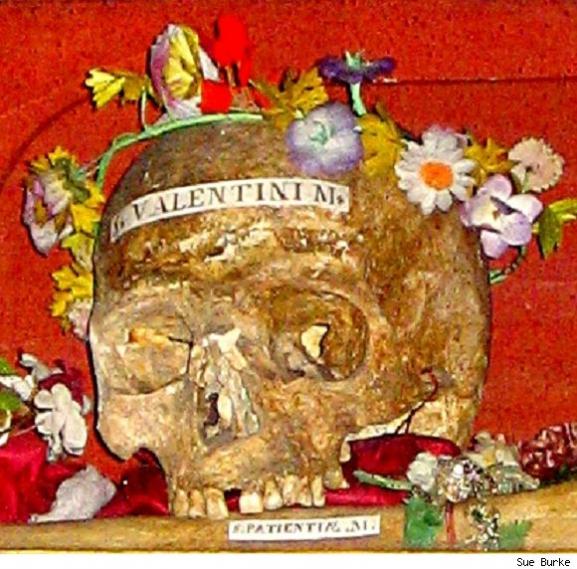To Clone or not to Clone?
The Day of the Last Judgement won't be easy for saints. The most popular saints will have to collect the fragments of their bones that were given out as relics to places sometimes at a very considerable distance from each other. It will even be a problem to ascertain the resting place of a saint's particular fragments, because relics were irresistible morsels for thieves, and moreover there are often bones of unknown origin in reliquaries.
The problem of relics apparently contributed to ending the controversy surrounding autopsies. The church was absolutely opposed to the violation of the integrity of persons who had given up their souls, and at the same time the commerce in relics was both lucrative and essential from the point of view of evangelization. For a while the problem was solved by dialectical immaterialism, but the cohesion of the doctrine was broken and the Church started to turn a blind eye to the peculiar interests of medics. (Of course, many still thought that if there were no material or spiritual profits, this interest could only be dictated by the whispering of Satan.)
I am reminding of this story in the context of the current discussion of cloning. The cloning of a human being, in whole or in part, meets with the adamant resistance of the Church, and that seems totally in accord with its whole holy tradition. However, the precedent of the consent to autopsies can be an interesting analogy here. Let's consider the possibility for a post-modern approach to the issue of relics. Propagating the tissue of a saint does not present any technical problems now (provided, of course, that we have at our disposal living tissue, which can easily be supplied in the case of all known living candidates for sainthood). This way every parish could acquire the suitably preserved tissue of a saint, and richer parishes with access to more modern technologies could benefit from eternally living relics.
There is much talk today about the convergence of science and religion. Creative thinking should lead to some practical conclusions which can come from such a convergence. The presence of a living relic will undoubtedly increase the efficacy of our prayers. Of course, this would mean some additional costs, but let us remember that Catholicism (and for that matter, not only Catholicism) is a system for collecting protection money. Justice can always be corrected thanks to appropriate intercession, and the intercession itself depends on the saint: will he decide to undertake it or not? The quantity and quality of relics cannot be without significance for the efficacy of the system.
Rationalists, even if they are not convinced of the efficacy of the intercession of saints, should notice an additional aspect of the question, and this is an increase of employment opportunities, both in labs and in parishes, the increase of general welfare, and further opportunities to help the poor.
There has been much speculation about what would happen if labs started to produce clones of Hitler or other such figures. Representatives of sciences have claimed that a clone is nothing new and every identical twin is a clone of his/her sibling, that there is no genetic determinism, and that a biological clone is not in every respect identical to his/her biological copy because we are formed even by individual experiences, among which upbringing plays a significant role.
And where upbringing is concerned, nobody has such a long and comprehensive experience of it as religious institutions, and from here it is just a step to the assertion that clones of saints would probably become more like their prototypes than clones brought up by less experienced institutions. Such a prospect might also unite opponents to the cloning of people (while agreeing to the cloning of human tissue). Fear of the re-appearance of some persons from our past is powerful and even if not rational it is, in a sense, justified.
